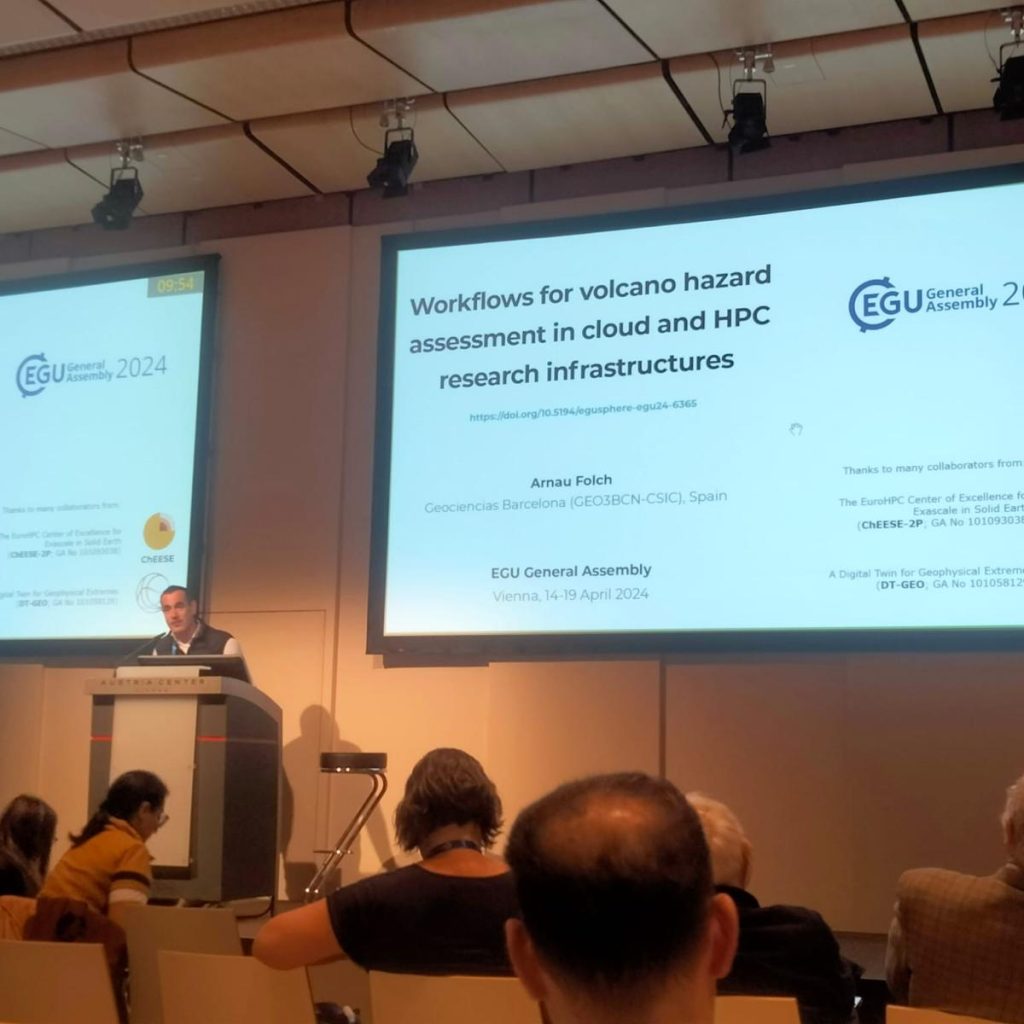DT-GEO made a significant impact at EGU 2024, showcasing groundbreaking advancements in geophysical research and computational technologies. Here’s a glimpse into the exciting contributions from our esteemed team:
- Carlos Sánchez Linares, from the University of Malaga, demonstrated how neural networks are advancing tsunami warning systems in Spain, boosting early detection capabilities. This collaborative project involves other projects such as eFlows4HPC or ChEESE CoE.

- Francesco Zuccarello, from INGV, presented an innovative algorithm for modeling complex lava flows via satellite data, pushing the boundaries of volcanic monitoring techniques.

- Valentina Magni (NGI) discussed advancements in probabilistic tsunami forecasting, leveraging seismic data to predict coastal impacts, enhancing our understanding of these devastating events.

- Paula Herrero (from GEO3BCN – CSIC) is refining tomographic models in the Western Mediterranean. Her work with high-frequency data from minor seismic events is key to enhancing resolution, providing clearer insights into subterranean structures.


- Ramon Carbonell (from GEO3BCN – CSIC) highlighted strides in digital twinning for monitoring geophysical extremes like earthquakes and tsunamis using pre-exascale computing, a leap forward in predictive modeling.


- Rebecca Bruni (INGV) presented a digital twin for Mount Etna that combines 3D simulations and AI to predict volcanic changes, significantly improving eruption preparedness.

- Arnau Folch (from Geosciences Barcelona – CSIC) discussed innovative workflows that integrate data and simulations for volcano hazard assessments on both HPC and cloud infrastructures, ensuring robust and flexible approaches to disaster management.

DT-GEO is proud to contribute to these vital areas of research, driving the future of geophysics with cutting-edge computational techniques. Stay tuned for more groundbreaking developments from DT-GEO and our partners at EGU 2024!




